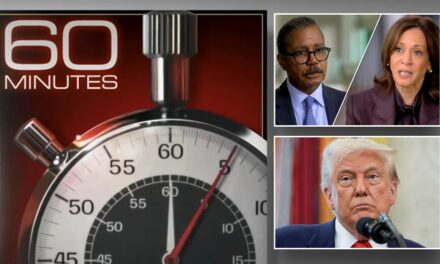In a surprising development within the realm of television talk shows, an insider from ABC’s popular talk show “The View” has expressed growing concerns following directives from Disney’s CEO, Bob Chapek, aimed at moderating the program’s political discussions. This move comes at a time when the political climate in the United States is particularly charged, generating significant public interest in the hosts’ opinions. The request from Disney’s leadership signals a potential shift in the network’s editorial policy and raises questions regarding the balance between entertainment and political discourse on mainstream platforms.
Once celebrated as a platform for frank discussions on hot-button issues by offering diverse viewpoints, “The View” has been known to engage its audience with a blend of humor and hard-hitting commentary. However, in recent months, Disney’s management has reportedly signaled to the show’s producers and hosts that a more restrained approach to political commentary could benefit the overall programming. This shift is perceived not only as a corporate strategy to cater to a broader audience but also as a response to mounting viewer fatigue over rampant political discourse.
Sources close to the production indicated that Chapek’s concern arises from viewing the current landscape of public opinion, where many viewers express that they are overwhelmed by incessant political conversation in their daily media consumption. As the nation continues to grapple with divisive issues, from social justice to economic recovery, the directive’s impact could considerably alter the show’s dynamic and approach to its subjects.
The insiders disclosed that during a recent meeting, hosts of “The View” were encouraged to pursue a diversified range of topics, shifting the focus slightly away from politics to make the show more of a general-interest platform. However, this request has not been universally well-received by the hosts. Many believe that the essence of “The View” lies in its ability to tackle contentious issues head-on, allowing viewers to engage with the hosts’ interpretations of current events, especially those that concern marginalized communities and women’s issues.
Critics of Chapek’s guidance argue that dialing back political conversation could dilute the show’s substantive discussions and compromise the credibility that “The View” has built over its many years on air. The show’s format has always thrived on the passionate exchanges between its diverse roster of hosts, who come from various backgrounds and often hold conflicting views. If they are constrained to avoid discussing controversial political matters, the risk is that the show could become less dynamic, thereby losing its particular appeal to viewers seeking a real conversation about issues affecting their lives.
Viewership ratings for “The View” have remained relatively robust amidst changing cultural landscapes; however, there are signs that the audience is bifurcated — some viewers petitioning for deeper conversations while others are apparently yearning for lighter fare. This division is further complicated by the ongoing global situation, including the COVID-19 pandemic and its economic repercussions, raising complex questions surrounding how political discussions can coexist with the need for escapism during turbulent times.
The timing of this pivot is also particularly notable, considering the upcoming presidential elections in 2024. Political conversation is likely to heat up, especially as candidates start to outline their platforms and debates begin. For a program like “The View,” which traditionally serves as a litmus test for public opinion on pressing issues, reducing political chatter before this crucial period could represent a strategic miscalculation. Many industry watchers, as well as ardent fans of the show, are concerned this approach will create a vacuum during a moment in history when potent discussions are necessary.
Moreover, Chapek’s guidance could also reflect broader trends within the entertainment industry, where networks are increasingly cautious about the effects of political branding. When various shows lean heavily into political commentary, they risk alienating significant portions of their audience who may prefer a more apolitical experience. The dilemma for networks like ABC becomes walking a tightrope — balancing the desire to inform viewers and remain relevant while attracting and accommodating advertisers whose interests may not align with certain political agendas.
As this internal debate unfolds, the reactions of various stakeholders continue to emerge. Some media analysts are advocating for shows like “The View” to stay true to their roots, insisting that the program has the potential to serve as an important social and political barometer. Meanwhile, others echo Disney’s management sentiment, suggesting that perhaps a less politically charged format could refresh the show’s content and make it more palatable to the everyday viewer who seeks entertainment rather than an information session.
It remains to be seen how the hosts will respond to this directive. Strong personalities, such as Whoopi Goldberg, Joy Behar, and Sunny Hostin may push back against these changes, advocating for the necessity of confronting challenging issues directly. Having built their careers on charismatic engagement, these women are unlikely to simply step back from what has been a hallmark of their discussions. Their very appeal to their audience hinges on their abilities to address the political landscape and to elevate conversations that matter to their viewers.
As insights from within the production team continue to leak out, the principle of editorial independence versus corporate influence frames the ongoing conversations. The next few months will be telling — whether “The View” will truly shift its focus or whether the hosts will find a way to merge entertainment with the pivotal political discussions that characterize this period. In the face of unprecedented challenges and societal shifts, many viewers will be tuning in to see how the show navigates this evolving directive from corporate leadership.
In conclusion, the balance between political discourse and entertainment is a precarious one, especially for programs like “The View” that have prided themselves on delivering real conversations on current issues. The choice by Disney’s CEO to encourage a cooling off of political discussions speaks volumes about the broader entertainment landscape where corporations are realizing the lingering effects of viewer fatigue. However, it also raises critical questions about the role and responsibility of such platforms to engage with the pressing issues of the day. As social commentators continue to analyze this situation, both viewers and hosts alike are left wondering what the future holds for “The View” and the essential conversations it has sparked over the years.































